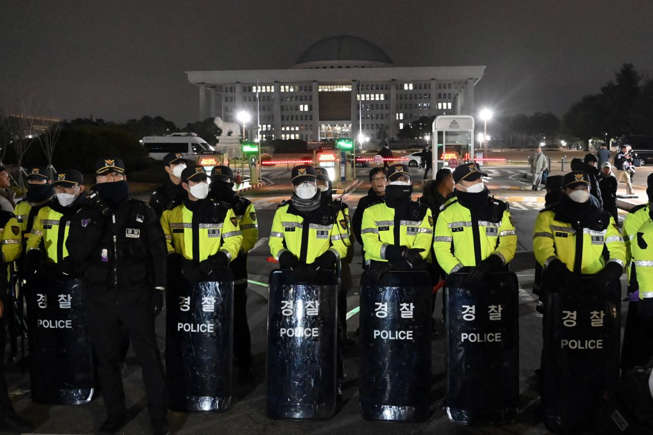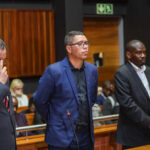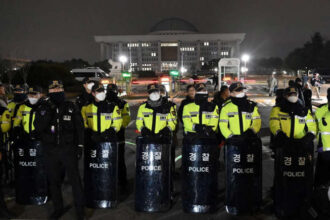In an unprecedented move, South Korea has declared martial law for the first time in 50 years, citing the need to protect the nation’s constitutional order amid escalating tensions with North Korea. President Yoon Suk Yeol announced the emergency measure in a televised address, vowing to “eradicate pro-North Korean forces” and safeguard the country’s democracy. However, the announcement has plunged South Korea into political chaos, with opposition parties and protesters condemning the declaration as unconstitutional.
Martial Law Declared Amid Political Crisis
President Yoon justified the declaration by accusing opposition parties of undermining parliament and sympathising with North Korea. “I had no choice but to safeguard the free and constitutional order,” Yoon said, without specifying any immediate military threat from the North. Instead, he focused on domestic political opponents, whom he accused of creating a crisis.
The National Assembly in Seoul has been locked down, with access blocked to all members. Protests erupted shortly after Yoon’s announcement, with footage showing demonstrators breaching the gates of the parliament building. Police struggled to contain the crowd as tensions flared, raising concerns of further unrest.
Opposition Condemns Move as Unconstitutional
Opposition leader Lee Jae-myung, who narrowly lost the 2022 presidential election to Yoon, condemned the martial law declaration as “illegal and unconstitutional.” He warned that the military could be mobilised to arrest opposition lawmakers. “This is an assault on our democracy,” Lee said, as the Democratic Party raised alarms about the potential for widespread repression under the martial law command.
Military Tightens Grip on Governance
Defence Minister Shin Won-sik has instructed all military units to heighten their readiness, while Army General Park An-su has been appointed martial law commander. Under Yoon’s directive, military authorities now control political activities, media, and publishing outlets. The Yonhap news agency reported that political party operations and parliamentary activities have been suspended, sparking uncertainty about the future of governance in South Korea.
International Reaction
The White House confirmed that U.S. President Joe Biden is in contact with South Korean officials to monitor the situation closely. The declaration raises concerns about stability in the region, given North Korea’s nuclear capabilities and the ongoing diplomatic ties between the U.S. and South Korea.
Impact on Governance and Democracy
It remains unclear how martial law will affect the nation’s democratic processes, but the swift militarisation of government functions has alarmed political observers. The potential for media censorship and the suspension of political freedoms could lead to a prolonged crisis, with fears that democracy in South Korea is at risk.
Conclusion
South Korea’s declaration of martial law marks a dramatic escalation in both domestic politics and regional security concerns. As the government moves to suppress opposition voices and tighten military control, the future of the country’s democratic order hangs in the balance. The world watches closely as South Korea navigates this unprecedented political turmoil, with both domestic and international implications at stake.









